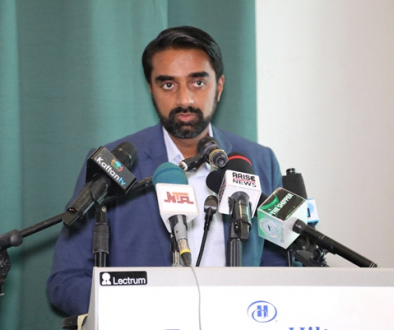Soji Apampa, CEO of the Integrity Organization gets invited to the 1st Collective Action Regional Clinic Middle East & Africa that held in Egypt as an Anti-Corruption expert

On February 7th and 8th 2018, The Integrity Network Initiative invited experts and practitioners to a 2-day Regional Clinic Middle East & Africa in Aswan on “Collective Action to Counter Corruption and Foster Integrity” in Egypt on February 7th and 8th, 2018.
In bringing together the expertise of some of these initiatives, the workshop aimed to identify success factors and challenges in implementing Collective Action. A goal was further to discuss ways to scale up and improve the long-term effectiveness of initiatives in the region, as well as to generally identify steps forward for Collective Action against corruption.
In the region, as elsewhere, corruption has been repeatedly identified as a key obstacle to economic development and impediment to doing business. Collective Action, defined as a “collaborative and sustained process of cooperation between stakeholders”, has emerged as a promising tool to tackle this challenge. In recent years, initiatives that follow a collective action approach have been established increasingly to strengthen ethical standards in the business environment.
Mr. Soji Apampa, the CEO, The Convention on Business Integrity was the only Nigerian representative amongst twenty-four (24) participating initiatives/ organisations spread across the African Region at the event.
Twenty Four organizations and initiatives were represented in the workshop, coming from countries as diverse as Saudi Arabia, Tunisia, Malawi, Nigeria, Ghana, Egypt, South Africa, Ethiopia, UAE, Lebanon, and Turkey. The workshop further included a variety of international organizations to bring in a global perspective and to identify ways in which regional and international initiatives can foster mutual learning.
On Day 1, participants convened in joint discussions on the status of Collective Action globally as well as to discuss regional implementation. Subsequently participants broke out into action-oriented clinics to discuss some key implementation challenges and success factors in more detail. The clinics were held in cooperation with the Basel Institute on Governance and covered the following areas:
- Setting up a Collective Action
- Building Multi-Stakeholder Alliances
- Creating Sustainability and long-term engagement
Among the topics identified as crucial was building trust among, and engaging with, different stakeholder groups – especially in terms of dealing with a lack of capacity or willingness to engage among crucial stakeholders. Further communication strategies and incentive schemes to encourage engagement over time and the question of financial sustainability.


